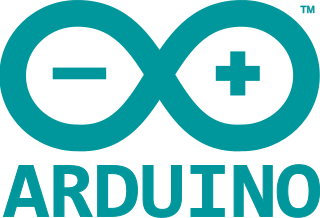The big news in the single board computer realm recently hasn’t been with the Raspberry Pi, but with actions centering around Arduino…or should we say Arduinos?
The Raspberry Pi Report
My introduction to the world of single board computers started with the Raspberry Pi and an attempt to spin up a media server. Once the media server was established, the GPIO pins began to peek my interest and other projects were born. As I learned more about GPIO and electronics, I discovered there existed boards other than the Raspberry Pi that I could program to take my projects to another level.
 Two boards I began to work with were the Arduino and the BeagleBone Black. While I do like the BeagleBone Black, it’s the Arduino that has really honed my skills with electronics. The Raspberry Pi is all the rave of the tech world currently, but I thought I would take a moment to talk about some recent interesting stories about the board that everyone seems to have forgotten.
Two boards I began to work with were the Arduino and the BeagleBone Black. While I do like the BeagleBone Black, it’s the Arduino that has really honed my skills with electronics. The Raspberry Pi is all the rave of the tech world currently, but I thought I would take a moment to talk about some recent interesting stories about the board that everyone seems to have forgotten.
IDE update and future: The Arduino IDE has undergone quite a few changes in the past couple of months. The most recent update, 1.6.10, features an improved AVR toolchain, which should solve problems that some developers were experiencing when deploying from a Mac or on Linux, and an improved command line builder utility.
Version 1.6.10 is paving the way for a great user experience when developing on Arduino Create. Now out of beta and open to everyone, Create is poised to become the replacement to the current IDE. What Create offers is a cloud-based platform that combines several features into one, making life easier for Arduino developers by giving easy access the device’s web editor, store, forum, Project Hub and Getting Started Tools. As someone who uses the IDE often, I’m really excited about the developments with Create and looking forward to trying it out on my next project.
myDevices and Arduino: After hearing about the path Arduino is taking with Create, it should be no surprise that a partnership with myDevices and Arduino occurred this past week. I have written about myDevices before and their Cayenne platform, which aims to make IoT development easier when using a Raspberry Pi. Now myDevices is expanding Cayenne to include the Arduino as well.
This story is important for a couple of reasons, one being that myDevices has become serious about wanting to be the industry standard for IoT project building. They have said this before, but it was hard to take them seriously since they only supported the Raspberry Pi. With support for the Arduino, it’s now become time to look at the company as a key leader in the IoT realm.
The second reason is the amount of functionality that supporting the Arduino brings to myDevices. There are quite a few things that the Raspberry Pi can do, but that pales in comparison to the Arduino’s capabilities, especially when you consider all the extra shields that can be used in tandem with the latter device. If myDevices can provide full support for every Arduino shield through Cayenne, then they will be the de facto standard for IoT development.
Pimoroni says goodbye: Another important part of the myDevices story is the partnership it struck is with Arduino S.r.L. Why is that important? Well, that depends on who you talk to. If you talk to most Arduino enthusiasts or tinkerers, then it’s not important at all. But if you are talking to a supplier/distributor, such as Pimoroni, then it’s very important.
Last year there was a big divide within the Arduino camp that resulted in two factions and ended up with two of everything (websites, IDEs, boards). Really feeling the pain in this divide were resellers like Pimoroni, who sided with Arduino LLC. Since that decision, Pimoroni has suffered numerous setbacks with Arduino LLC, and after receiving news of more hoops being required to jump through in order to sell Arduinos, they finally had enough. This week, the company officially announced it will no longer carry Arduinos and posted a lengthy explanation on their stance.
I hope that the actions taken by Pimoroni do not become a common theme among Arduino suppliers and that the weight of their actions will help to bring the two Arduino camps closer together.
VW Hack: Seems that misery loves company when it comes to the car maker Volkswagen. Recent news has surfaced that practically every VW car produced since 1995 contains a flaw in the keyless entry system which allows a hacker to easily unlock the car doors. Using an Arduino board with an attached radio receiver, researchers were able to intercept the signal from the victim’s key fob, which then granted them powers to unlock the doors once the intercepted signal was cloned. While this isn’t the easiest of hacks to pull off, it still illustrates the need for proper automotive IT security as cars become more integrated with the online world.
In addition to hosting a Raspberry Pi meetup in Washington D.C., Isaac Carter is a co-host on mintCast. He’s also a software engineer who enjoys working with Java, JavaScript, and GNU/Linux. When he’s not coding, you can find him reading on any number of subjects or on the golf course.








Great seeing somebody else knows Arduino exists. Thanks for letting me know about the IDE updates. It’s been a while since I’ve looked. I’ve been using Arduinos for about three years and have built quite a number of circuits, plus introduced my grandson to them. Haven’t yet found the perfect super project to satisfy me and mundane things like keeping the lawn mowed keep interfering, but I’ll find something. Autonomous lawn mowers exist, by the way, and the return for building yet another one doesn’t seem worthwhile.
Maybe something aimed toward world domination…